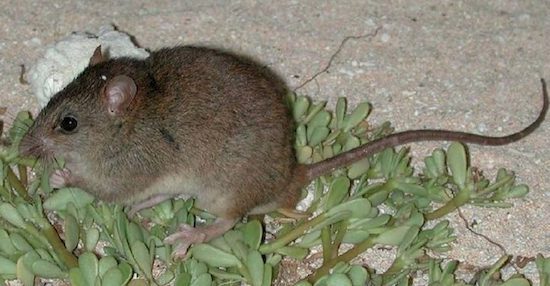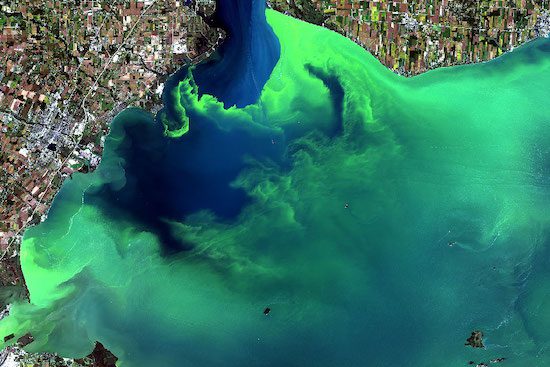


Make Them Pay: As many as 110 million Americans may have drinking water contaminated with toxic nonstick chemicals or PFAS. These chemicals are a health and environmental nightmare created by chemical companies 3M and DuPont (now Chemours), who reportedly had sufficient information decades ago to know that certain PFAS were harmful. PFAS can leave our environment polluted, our water undrinkable, and our bodies sick. Americans were treated like guinea pigs as chemical companies sold more and more PFAS. Taxpayers are now being asked to foot the bill for what could amount to billions of dollars in clean up and health costs. As if that weren’t enough, more PFAS are manufactured every day for products like nonstick and waterproof coatings and for some firefighting foam. So the contamination cycle continues. It’s time to hold the chemical makers accountable.
>>>Demand that 3M and Chemours discontinue production of PFAS chemicals and pay to clean up their nonstick nightmare.
Care2: Ninety-five percent of all lemur species could disappear forever if Madagascar doesn’t take action now. Lemurs are native to the east African island of Madagascar and nowhere else. If that country doesn’t take immediate action, nearly every species could be lost forever. More than 100 species of lemur qualify as critically endangered, endangered or vulnerable to extinction in the wild. From deforestation-driven habitat loss to illegal poaching and hunting, lemurs are under attack from all sides. Recently, scientists reported that the entire Madagascan rainforest—the lemur’s only home—is under threat of being completely wiped out by 2070. But there is hope. The International Union for Conservation of Nature has a plan—it’s just up to the government of Madagascar to uphold the policies that protect these vulnerable animals.
>>>Urge President Andry Rajoelina of Madagascar to take action to save lemurs.
Change: Legislation is greatly needed in Virginia to require dog owners to keep their pets indoors once the temperature drops below 35 degrees, or exceeds 85 degrees. Currently, there is no protection for dogs left outside, and severe weather poses a fatal threat to these defenseless animals. On the morning of January 12, 2017, a dog was found frozen to death in Accomack County, Virginia, surrounded by snow, ice and vomit. Her neck was bound tightly by a short chain that prevented her from reaching her plastic, uninsulated igloo, and she died an agonizing death, alone. She was posthumously named Rainbow. Her owner Jose Berlanga was charged with one count of animal cruelty and one count of failure to provide proper shelter. He was found guilty of both counts, fined $650 and sentenced to 60 days in jail. However, the entire jail sentence was suspended, as was $500 of the $650 fine. In the end, Berlanga paid a small fine of $150 for Rainbow’s death. It is common to leave dogs outside in extreme weather, but a bill may make this cruel practice illegal in Virginia.
>>>Urge Virginia’s legislators to pass SB 272/HB 1552 to protect dogs in extreme weather.
Letter to the editor…

Replying to “Renewables Are Gaining Traction, but We Need to Be Able to Store the Energy,” by Elliott Negin:
I live in Ontario, where conservative Premier Doug Ford has canceled hundreds of alternative energy projects at a cost of CAD$230 million (USD $173 million) to the taxpayer. Instead, we will cobble up our aging nuclear plants well past their projected life span at a cost several times that of alternative energy, such as hydroelectric power from Quebec. As for storage, in 2014, Harvard researchers announced a breakthrough on “flow batteries” which use an organic molecule similar to one found rhubarb. Since then, nothing. —Paul Whittaker (Ontario, Canada)
Cause for concern…

Going, going, gone: Yesterday marked the start of the weeklong U.N. Convention on Biological Diversity in Rome. Representatives from nearly 200 nations will address the severe threat facing Earth’s biodiversity, highlighted in a 2019 report warning that one million animal and plant species are at risk of extinction, primarily due to expanded farming and fishing (particularly in highly biodiverse tropical regions) and climate change. Also last year, the Bramble Cay melomys (above), a small rodent that lived only on a Great Barrier Reef island that was submerged by rising seas, became the first mammal declared extinct due to climate change.
- 10 species climate change could push to extinction (Tara Lohan and Dipika Kadaba, NationofChange)
- Not all in-home drinking water filters completely remove toxic PFAS (Nicholas School of the Environment, Duke University)
- BP’s statement on reaching net zero by 2050 is a step forward, but it’s too little, too late to tackle the climate crisis (Jonathan Watts, The Guardian)
- Trump opens national monument land to energy exploration (Coral Davenport, The New York Times)
- 10 U.S. oil refineries exceed limits for cancer-causing benzene (Emily Holden, The Guardian)
- Indigenous protests against natural gas pipeline expose Canada’s racist underbelly (Rajat Ghai, DownToEarth)
- Billions of animals still suffer 25 years after Israel passed welfare law (Sue Surkes, The Times of Israel)
- Botswana auctioning licenses to hunt 70 elephants to reduce conflict with humans (Jermaine Hoffman, Go Tech Daily)
- Madrid planning to cull almost all the city’s population of thousands of Kramer and Monk parrots (Clara-Laeila Laudette, Reuters via The New York Times)
- Hot temperatures linked to climate change decimating bee populations (Kendra Pierre-Louis and Nadja Popovich, The New York Times)
- Undercover investigation at Safari Club International convention reveals sale of potentially illegal wildlife products (Humane Society of the United States)
- Denver mayor will veto legislation that would end the city’s 30-year ban on pit bulls (Christina Maxouris, CNN)
Round of applause…

- Could the Ohio River have rights? A movement to grant rights to the environment tests the power of local control (Erin West, Environmental Health News)
- World’s largest maker of chlorpyrifos, linked to childhood brain damage, will stop producing the pesticide by year’s end (Sam Levin, The Guardian)
- Former research chimps rejoice at being set free for the first time (Paula Froelich, New York Post)
- Protecting large animals such as elephants and whales, and large plants like the sequoias, has a disproportionate positive impact on the health of the planet and resilience to climate change (University of Oxford and Mikayla Mace, University of Arizona)
- How Philippine farmers took control of banana plantations and formed cooperatives (David Bacon, Food First)
- Animal rights groups sue USDA and Secretary of Agriculture on behalf of pigs (Brandon Kirkwood, Vegan News)
- Maine might be the next state to require cage-free eggs (Associated Press via U.S. News & World Report)
- Joaquin Phoenix’s new film ties animal agriculture to global wildfires (Anna Starostinetskaya, VegNews)
- First vegan eggs hatched in a lab (Maeve Campbell, Euronews)
- Every vegan spares nearly 200 animals a year from daily suffering and terrifying death (Maria Choriando, PETA)
Parting thought…

“It’s a lifestyle more than just a diet because you have ethical reasons as well, being conscious of what is happening in the animal world.” —Tennis champion Novak Djokovic on being vegan
Earth | Food | Life (EFL) explores the critical and often interconnected issues facing the climate/environment, food/agriculture and nature/animal rights, and champions action; specifically, how responsible citizens, voters and consumers can help put society on an ethical path of sustainability that respects the rights of all species who call this planet home. EFL emphasizes the idea that everything is connected, so every decision matters.
Click here to support the work of EFL and the Independent Media Institute.
Questions, comments, suggestions, submissions? Contact EFL editor Reynard Loki at [email protected]. Follow EFL on Twitter @EarthFoodLife.